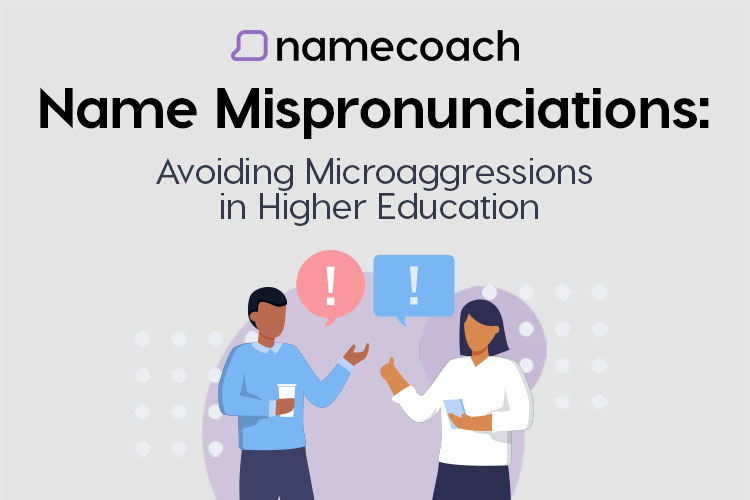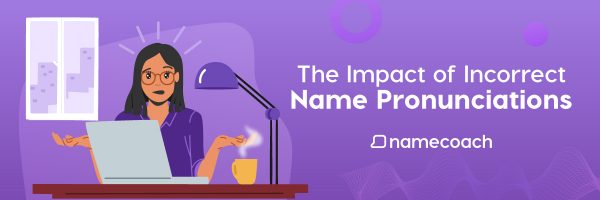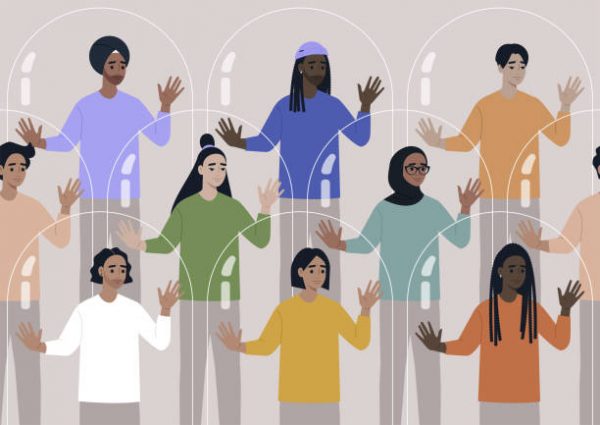
“A person’s name is the sweetest and most important sound in any language.”
Dale Carnegie
Why? Because our names are our identities. They’re the very foundation of who we are and everything builds upon them. A small-scale Say My Name study by the British Academy recently found that students see proper name pronunciation as a sign of respect, equality, and inclusivity. Imagine how students feel when an instructor fails to pronounce their name on the very first day or even refuses to attempt it (which is worse than saying it wrong) in front of the entire class. This isn’t to say that the instructor meant to make the mistake but that’s the thing about mistakes – we are meant to learn from them. Odds are, everyone has been on either side of a name mispronunciation. In fact, 80% of the 30M unique names worldwide have multiple pronunciations. So what, is it just hopeless to even try to get it right or expect others to? Absolutely not. There are many steps faculty can take to both prevent and correct an improper name pronunciation.
Start off on the right foot.
For starters, having students say their own names first gives them the opportunity to share their preferred pronunciation. Instructors should then repeat the student’s name back to them, confirming the correct pronunciation. It is possible that a student may feel singled out or embarrassed if they need to correct a pronunciation. So, establishing a safe space for students to meet with instructors after class can make them feel more comfortable.
Make an effort.
While mispronouncing someone’s name can be embarrassing and uncomfortable, it’s much worse to avoid saying the name altogether. According to research from Dr. Rita Kohli from the University of California, Riverside, when a child goes to school, they have invested thought and care into building an identity around the name they were given. When their name is negated or deemed “too difficult to pronounce,”especially by a person of authority, their identity suffers. Asking a student “Do you mind if I just call you…” rather than learning the pronunciation of their name, is disrespectful and can show disregard for their heritage, culture, and background.
Use technology to your advantage.
One of the best ways to prepare yourself for pronouncing students’ names is to use technology at your disposal and study beforehand. Use Namecoach! Namecoach provides a simple and effective solution to the common problem of name mispronunciation: audio name pronunciations seamlessly integrated with your online tools to easily learn and remember how to say them – perfectly. With Namecoach, students can voice-record their names and set up their Namepage once, during the enrollment process or within your LMS, for use across campus. Faculty and staff can access recordings and class rosters in any system, to learn pronunciations ahead of time.
Institutions that use Namecoach benefit from promoting a sense of belonging among their students from their first interaction. By prioritizing accurate name pronunciation, you demonstrate your commitment to diversity, equity, and inclusion on your campus. Namecoach enables students and faculty to be more respectful in every interaction and empowers everyone at your institution to maintain strong and personal relationships.
Proper name pronunciation is at the forefront of both digital and traditional learning settings, and prioritizing it fosters a safe space where students feel respect, trust, and a sense of belonging. These recommendations may only scratch the surface, but it’s a start. Everyone holds responsibility for putting in the effort to get names right and everyone can – it just takes preparation and awareness. Go that extra mile and you will witness a significant impact on the culture at your institution.
Interesting in learning more about how Namecoach can create a sense of belonging on your campus? Email [email protected] or visit name-coach.com.









